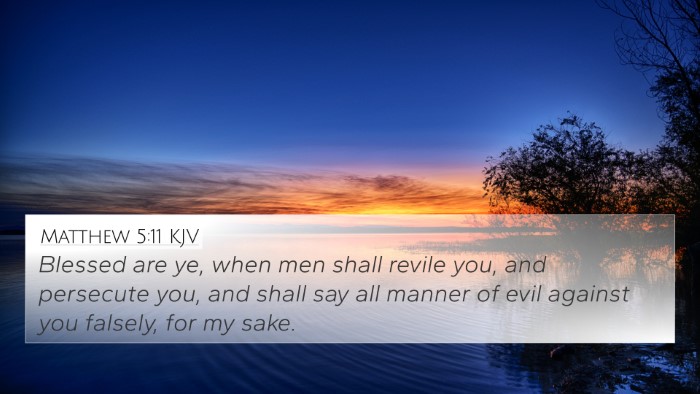Understanding Acts 21:38
Acts 21:38 presents a pivotal moment depicting the Apostle Paul's experiences during his time in Jerusalem. In this verse, Paul is confronted by a Roman tribune amidst the tumult of the crowd. The narrative highlights themes of identity, confrontation, and the fulfillment of prophecy, inviting a deeper exploration of interconnected biblical themes.
Verse Context
This verse falls within a broader narrative of Paul's mission and the tension that surrounds him due to his preaching. Acts 21 describes his arrival in Jerusalem, which was marked by both excitement and apprehension among the early Christians and Jewish leaders alike.
Key Themes and Insights
-
Identity and Misunderstanding:
The tribune addresses Paul as an Egyptian who led a revolt. This misunderstanding illustrates the broader theme of how Paul’s identity as a Roman citizen, a Jew, and a Christian can be misinterpreted in different contexts, echoing the complexities of his mission among various groups.
-
Divine Sovereignty:
Paul’s situation reflects divine providence at play. The truth that Paul's predicament unfolds within God's overarching plan is highlighted by commentators, emphasizing that even in moments of danger, God is directing events according to His purpose.
-
The Role of Authority:
The interaction between Paul and the tribune raises questions about the nature of authority and its recognition in Christian life. Paul appeals to his Roman citizenship, revealing the relationship between spiritual and secular authority.
Commentary Insights
Insights from various public domain commentaries further illuminate Acts 21:38.
Matthew Henry notes that Paul’s ability to communicate to the tribune captures God’s grace in the midst of chaos.
Albert Barnes emphasizes the significance of Paul’s Roman citizenship, asserting it played a critical role in his defense and illustrating God’s providence in his life.
Adam Clarke points out the implications of the tribune’s misunderstanding and how it reflects the challenges faced by early Christians in their identity and mission.
Related Bible Cross References
Acts 21:38 connects with several significant verses that enhance our understanding of its themes:
- Philippians 1:7: Elaborates on spiritual partnerships and the shared struggle of believers.
- Romans 13:1-7: Discusses the authority of governing bodies and the Christian's response to them.
- John 15:20: Prepares believers for the world's hostility in response to their faith.
- 2 Corinthians 11:23-30: Chronicles Paul's sufferings and experiences, aligning with his perseverance through trials.
- Acts 22:25-29: Further describes Paul’s assertion of his citizenship and its implications.
- Luke 12:11-12: Jesus teaches about how the Holy Spirit will aid believers when they face accusations.
- Matthew 10:16-20: Jesus encourages His followers to be wise and discerning, promising divine assistance during trials.
Thematic Bible Verse Connections
The themes in Acts 21:38 resonate with broader biblical narratives:
- Misunderstanding of God’s servants: Reflective of Joseph's experiences in Genesis 37 and 39, where he too faced false accusations.
- Role and recognition of authority: Seen in the ministry of Jesus, especially in His interactions with the authorities of His day.
Conclusion
Acts 21:38 serves as a profound example of how global themes of identity, authority, and divine providence converge in the life of Paul. Through comparative Bible verse analysis, one can identify rich layers of meaning that enhance the understanding of individual verses and their interconnectedness in scripture.
In exploring the connections between Bible verses, we discover the depths of God's plan and the call to believers to navigate their identities in faith, embodying resilience even amidst misunderstanding and adversity.






